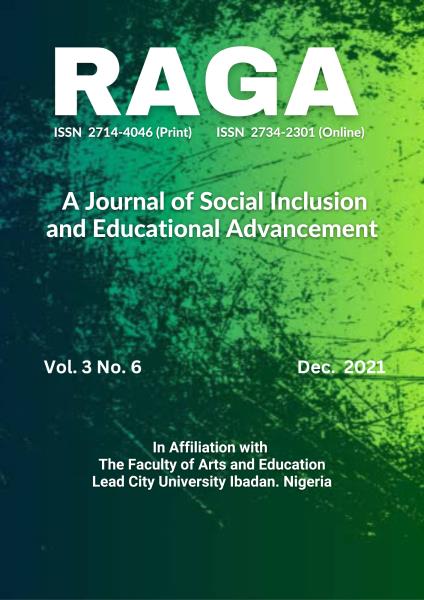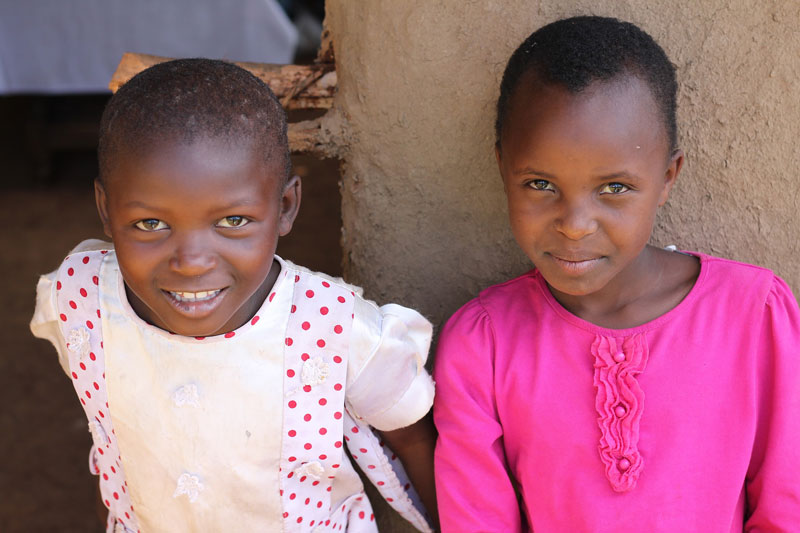
RAGA Journal of Social Inclusion and Educational Advancement is published biannually. The Editorial Board welcomes contributions in all fields of education, social sciences and humanities including technology, as well as economic, social and ethical issues related to the practice of education in a developing country. It is meant to meet the continuing educational needs of academics in various fields of study, which also includes postgraduate students as well as stimulate research and academic pursuit.
Frequency: Biannually
-
ISSN: 2734-2301(Online)
ISSN: 2714-4046(Print)
Frequency: Biannually - Editor-in-Chief: Adepeju Aderogba-Oti, Ph.D.
- E-mail: ragajsiea@gmail.com
Equipping Girls with Communication and Information Retention Skills for Sustainable Development
Lukman Adegboyega Abioye PhD, Kenneth Oluchi Umezurike
Lukman Adegboyega Abioye PhD
+2348023318934
E-mail: gboyegaabioye@yahoo.com
&
Kenneth Oluchi Umezurike
+2348071581511
E-mail: Kenneth.umezurike@yahoo.com
Downloads: 0
Views: 744
Impact of Teachers Teaching Methodologies in Equipping Girls in Secondary Schools for Sustainable Development in Nigeria
Kalu Chukwudi O.
+2349026945743, chuksboy2003@yahoo.com
Saleh Agwom Dauda, PhD
+2348063828411, salehdauda19@yahoo.com
Onuh Okwori, PhD
+2347039346388, onuh.okwori@yahoo.com
Grace Simadi Olowonefa
+2348173521142, gracesimadi@gmail.com
Agu Fidel Azubuike
+2348037039947, agufidel7@gmail.co
Downloads: 0
Views: 674
Improvisation in Science Practicals as Means of Equipping Students with Skills in Science for Sustainable Development
Omolola O. Oloyede PhD
oloyedelol@ymail.com / 08037413401
&
Veronica Oluwatoyin Animasahun PhD
animarotini@yahoo.com / 08068058702
Department of Science
& Technology Education
University of Ibadan, Nigeria
Downloads: 0
Views: 665
Equipping Girls with Communication and Information Retention Skills for Sustainable Development
Lukman Adegboyega Abioye PhD, Kenneth Oluchi Umezurike
Lukman Adegboyega Abioye PhD
+2348023318934
E-mail: gboyegaabioye@yahoo.com
&
Kenneth Oluchi Umezurike
+2348071581511
E-mail: Kenneth.umezurike@yahoo.com
Downloads: 0
Views: 744




